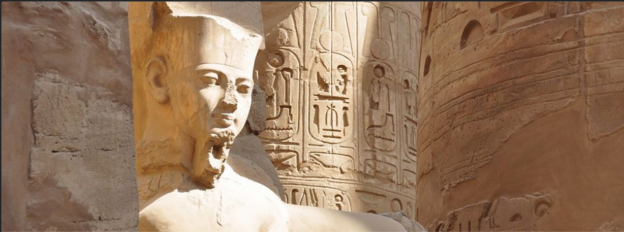Summary
When things go wrong, we often forget God’s promises. We focus on our own failures and inadequacies, and not on God’s power to save and conquer. Moses and the Israelites, faced with more oppression by the Egyptians, had forgotten God’s promises and lost hope.
In our last devotion, we saw God remind Moses of his nature as a promise-keeping God. In Exodus 7:1-7, God reconfirms to Moses his divine appointment as God’s ambassador and leader of his people. He reminds Moses of his divine mission, warns him of the struggle against Pharaoh to come, and promises again to deliver the Israelites to freedom.
Our passage explained
v1-2
Firstly, we see God reconfirm to Moses his divine appointment as God’s ambassador and the leader of the Israelites. Moses assumed his lack of speaking talent was a stumbling block to God’s purposes, but God does not agree.
Instead, God describes Moses as his ambassador, saying “see, I have made you like God to Pharaoh, and your brother Aaron shall be your prophet” (v.1). Moses was not a commentator providing analysis and insight to Pharaoh, but the mouthpiece of God standing and announcing. What Moses announced, God was announcing. Aaron, who in early exchanges with Pharaoh would speak for Moses, was his mouthpiece in turn.
The message they gave should be received as if God had directly stood and spoken to Pharaoh himself. God’s command was “you shall speak all that I command you, and your brother Aaron shall tell Pharaoh to let the people of Israel go out of his land” (v.2). Moses and Aaron were not self-appointed, but divinely appointed leaders of God’s people and ambassador for God, bringing the approved message of their Covenant King.
v3-4
While Moses was reminded of his divine appointment, he was also warned of the struggle against Pharaoh to come. “But I will harden Pharaoh’s heart, and though I multiply my signs and wonders in the land of Egypt, Pharaoh will not listen to you” (vv.3-4).
The passage clearly states that God himself will harden Pharaoh’s heart. While we use hard-heartedness as a reference to an uncaring attitude (and there is a sense where that is certainly true here), the hard-heartedness meant here is better understood as an increasing stubbornness and refusal to recognise God’s command. More than solely Pharaoh’s sinfulness, God will actively harden Pharaoh in judgment for his enslavement of God’s people.
This stubbornness carries on despite many miracles. Moses will perform “signs and wonders” but Pharaoh will not listen. “Tone-deaf” Pharaoh will lead his land into disaster, ignoring the signs of the times and God’s ambassador, speaking as God to him.
Despite the struggle to come between Pharaoh and God, God will deliver the Israelites to freedom. Foolish Pharaoh will bring judgment on the whole land, as God “will lay my hand on Egypt and bring my hosts, my people the children of Israel, out of the land of Egypt by great acts of judgment” (v.4).
v5-7
God’s hand will be so apparent that “the Egyptians shall know that I am the LORD” (v.5). Not only the Israelites, but also the Egyptians, will acknowledge God’s power and authority. The Egyptian religion of fake gods and a “divine” Pharaoh will be exposed for the nonsense it is.
Moses and Aaron respond to God’s words in faith. Unlike Pharaoh, their hearts are softened to hear God and believe him. “Moses and Aaron did so; they did just as the Lord commanded them” (v.6). Moses and Aaron go once again to Pharaoh, knowing his hard heart, because they trusted God’s promises. Their ages, at 80 and 83, are no barrier to them serving God to deliver the Israelites (v.7).
Our passage applied
The declaration of Moses as being like God reminds us that we should treat all of the Scriptures as God’s words. They were written by many men over centuries, but were written as if by God himself (inspired by the Holy Spirit). The Prophets and Apostles wrote as God’s ambassadors, and the message they bring is one from God himself.
This high calling extends to the Preacher as well. When the Preacher stands at the pulpit, declaring and explaining God’s Word, he serves as an ambassador for God to us. We ought to pray that our Preachers are always faithful to God who sends them, whom they represent.
Moses and Aaron faced a ruler who was not prepared to listen to God. God actively hardened Pharaoh’s heart, making Pharaoh more resistant to their message. God chose to make more stubborn a man who sinned against God and his people, to bring about his judgment and for God’s glory. It is not unfair that God acts this way, and so we can expect to see the same judgment applied to sinners in the world today.
But while Pharaoh’s heart was made more stubborn, Moses’ was softened. We can thank God for showing mercy and softening our hearts, even when like Moses we are disobedient and forgetful of God’s promises. Our deliverance does not depend on us, but on God who has shown mercy to us.
Resources
Questions? Please contact us. Inspired? Come and worship with us on Sundays.

